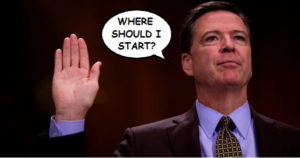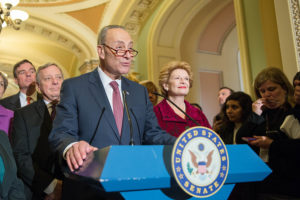
Sally Yates, then Deputy Attorney General, in 2016
Republicans in Congress perhaps exceeded even their own partisan reputation at yesterday’s hearing of the Senate Subcommittee on Crime and Terrorism entitled “Russian Interference in the 2016 United States Election.” The hearing featured Sally Yates, who was Acting Attorney General in the Trump administration until she was fired on January 30 of this year. Also appearing at the hearing was former Director of National Intelligence James Clapper. Each of these witnesses has decades of experience serving in the government under presidents of both parties, and both have knowledge about Russian efforts to interfere with the 2016 U.S. elections. For example, both witnesses know about Michael Flynn, a campaign advisor and then National Security Advisor under Donald Trump for just a few weeks, until February 13. Flynn, a principal subject of the hearing, was fired after the Washington Post reported that he lied about his telephone calls with Russian officials, including Russian Ambassador to the U.S. Sergey Kislyak, where the two discussed U.S. sanctions against Russia for interfering in the U.S. election that had just taken place. Yates testified at yesterday’s hearing that, in January of this year, she had urgent meetings and calls with Trump White House attorneys about Flynn, and that she recommended that action be taken regarding Flynn, because he was causing Vice President Mike Pence to lie to the American people about Flynn’s discussions with the Russians, and because Flynn was vulnerable to blackmail from Russia over his lies.
However, many of the Republican Senators on the panel did not seem to want to know about Russian involvement in our election. Instead, they criticized the “leaks” that led to the disclosure of Flynn’s activities, as well as the “unmasking” of Flynn. Part of what is shocking about the Republicans’ behavior at the hearing is that, had Flynn not been identified, he might still be National Security Advisor and would still be, as Yates explained, compromised by Russia.












